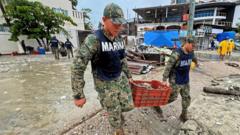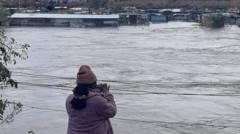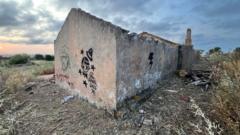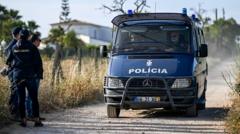Millions experienced a massive blackout across Spain and Portugal, highlighting the importance of essential supplies for enduring such outages.
**Surviving a Power Outage: Essential Items to Have on Hand**
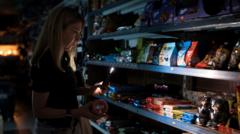
**Surviving a Power Outage: Essential Items to Have on Hand**
Preparedness is key during unexpected power cuts; here are five must-haves.
The lights have gone out, and with them, much of daily life often comes to a halt. This was the reality for millions of people in Spain and Portugal who faced the worst power outage in their history recently. Many shared their experiences and provided insight into essential items that helped them navigate the challenging day without electricity.
**1. Cash**
With electricity down, traditional card payments failed, leading to long queues at cash machines still operational. Ed Rowe, a 26-year-old from Madrid, emphasized, “Cash is king.” He and others found themselves relying on coins to buy necessities as restaurants switched to cash-only transactions.
**2. Wind-Up Radios**
A lost internet connection meant the absence of news and communication, leaving many in uncertainty. However, for those who had wind-up radios, like the Buschschluter couple, they were able to tune into local broadcasts to stay informed. “It was quite a strange situation," Christine Buschschluter noted, drawing parallels to her childhood during the war.
**3. Tinned Foods**
Electric stoves went unused, and the demand for non-perishable foods soared. As panic buying took over supermarkets, residents stocked up on canned goods. Jaime Giorgio mentioned, “We bought food that wouldn’t spoil,” while others struggled to make meals without heating available.
**4. Candles and Torches**
In the absence of streetlights, candles became a popular source of illumination. Richard from Alcala de Henares observed a surreal darkness engulfing his surroundings. Sarah Baxter innovatively sourced heat for instant meals using candle stovetops, though she highlighted the fire hazard posed by open flames.
**5. Power Banks**
With devices running out of power, many flocked to tech shops for power banks. Sarah managed to keep her phone charged with a solar charger throughout the blackout, while others regretted not being prepared with additional batteries or physical books for entertainment.
Despite the challenges, some found a silver lining in disconnecting from technology. “It’s a nice reminder you can be more independent,” said Rowe, reflecting on the experience as an opportunity for self-reflection.
As communities recover and restore taken-for-granted amenities, these lessons highlight the importance of preparation for future outages, ensuring that essential supplies are at the ready.
**1. Cash**
With electricity down, traditional card payments failed, leading to long queues at cash machines still operational. Ed Rowe, a 26-year-old from Madrid, emphasized, “Cash is king.” He and others found themselves relying on coins to buy necessities as restaurants switched to cash-only transactions.
**2. Wind-Up Radios**
A lost internet connection meant the absence of news and communication, leaving many in uncertainty. However, for those who had wind-up radios, like the Buschschluter couple, they were able to tune into local broadcasts to stay informed. “It was quite a strange situation," Christine Buschschluter noted, drawing parallels to her childhood during the war.
**3. Tinned Foods**
Electric stoves went unused, and the demand for non-perishable foods soared. As panic buying took over supermarkets, residents stocked up on canned goods. Jaime Giorgio mentioned, “We bought food that wouldn’t spoil,” while others struggled to make meals without heating available.
**4. Candles and Torches**
In the absence of streetlights, candles became a popular source of illumination. Richard from Alcala de Henares observed a surreal darkness engulfing his surroundings. Sarah Baxter innovatively sourced heat for instant meals using candle stovetops, though she highlighted the fire hazard posed by open flames.
**5. Power Banks**
With devices running out of power, many flocked to tech shops for power banks. Sarah managed to keep her phone charged with a solar charger throughout the blackout, while others regretted not being prepared with additional batteries or physical books for entertainment.
Despite the challenges, some found a silver lining in disconnecting from technology. “It’s a nice reminder you can be more independent,” said Rowe, reflecting on the experience as an opportunity for self-reflection.
As communities recover and restore taken-for-granted amenities, these lessons highlight the importance of preparation for future outages, ensuring that essential supplies are at the ready.


